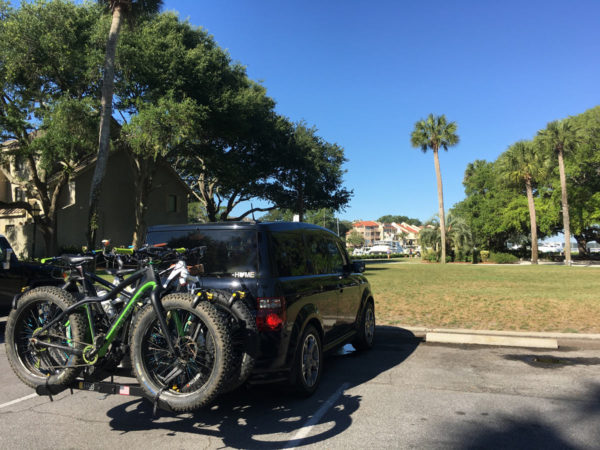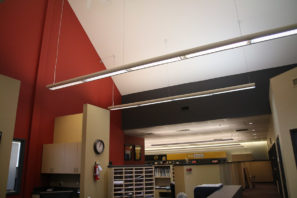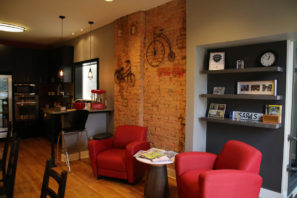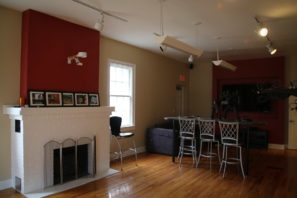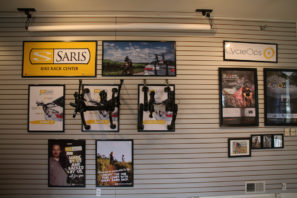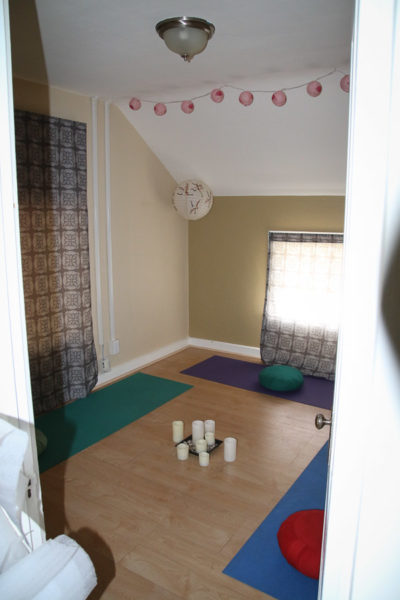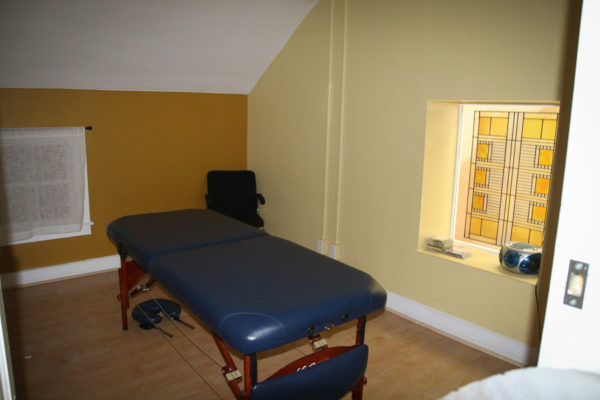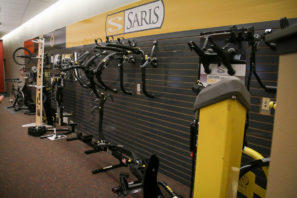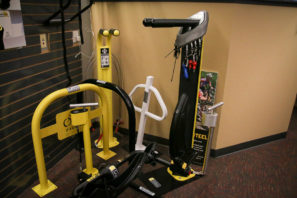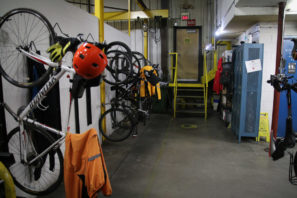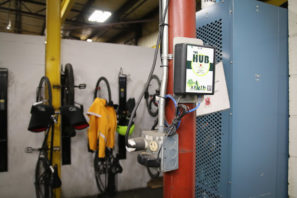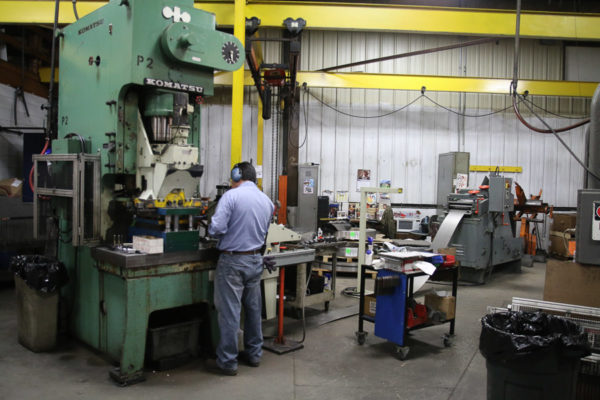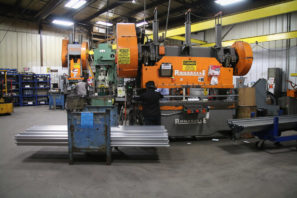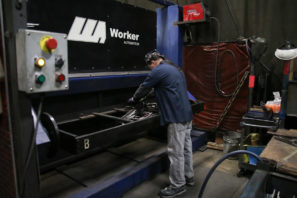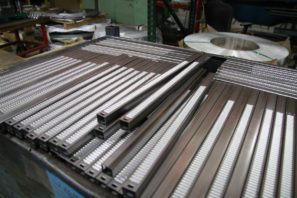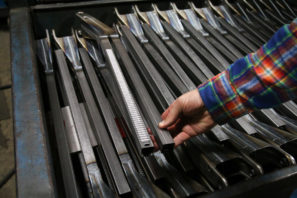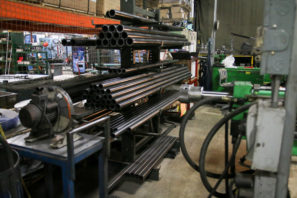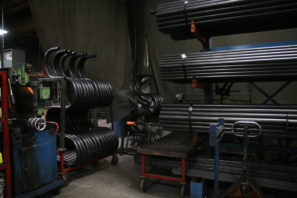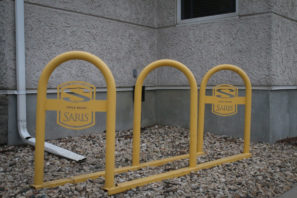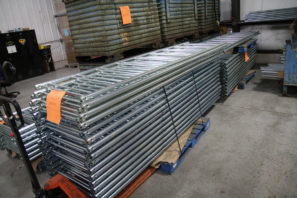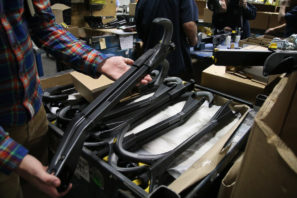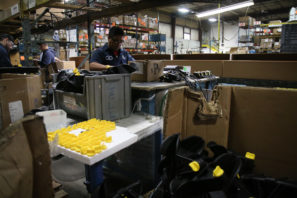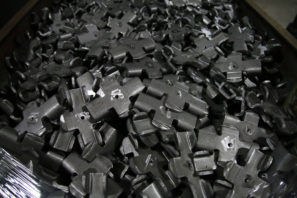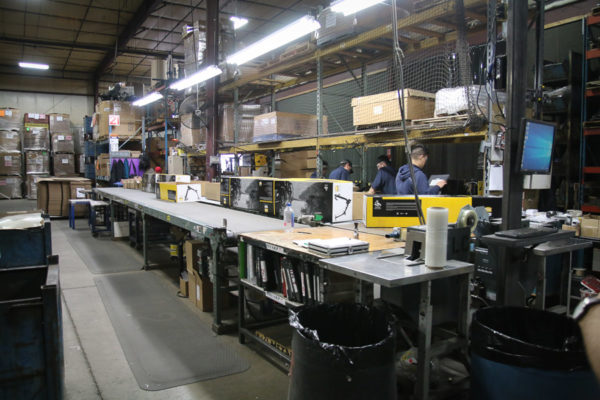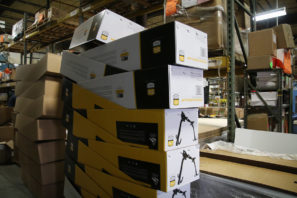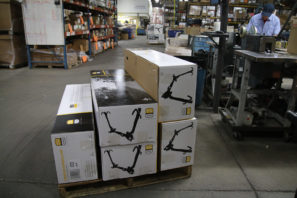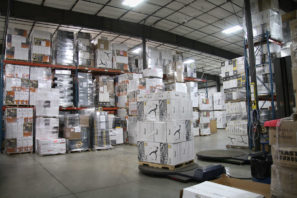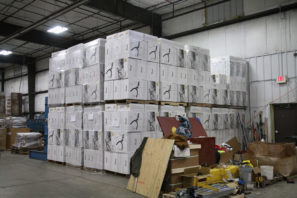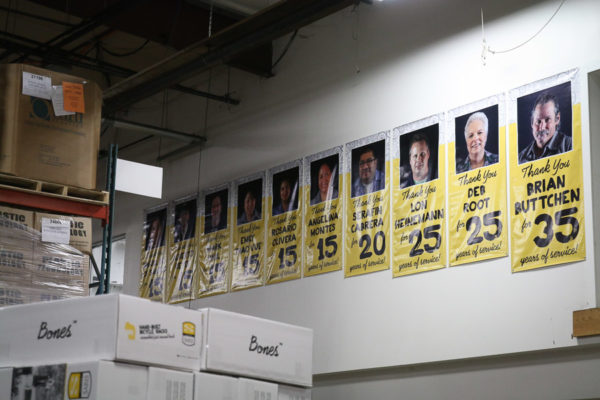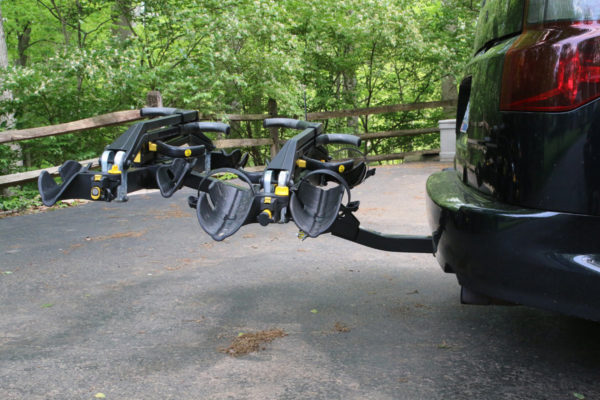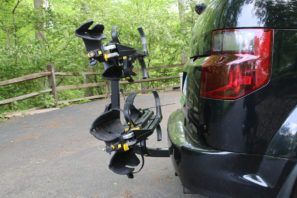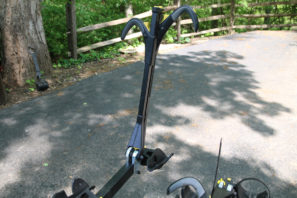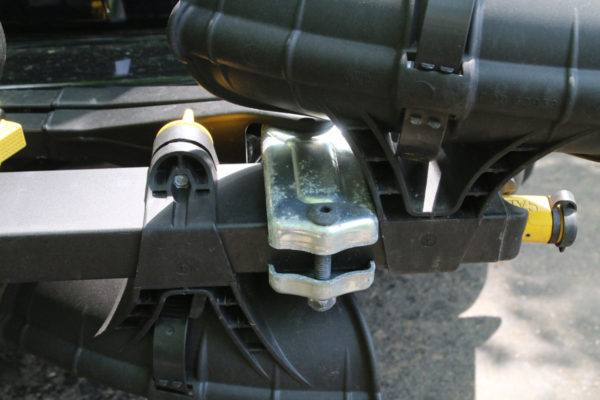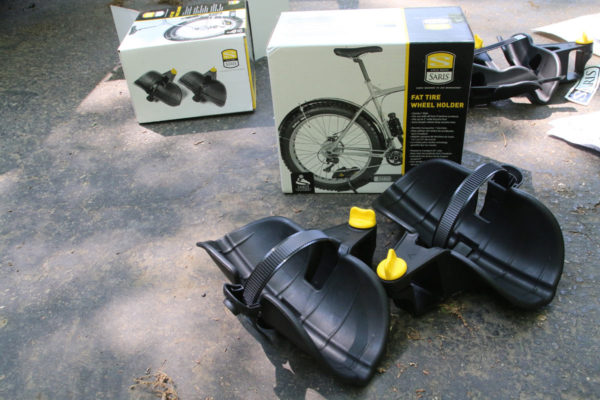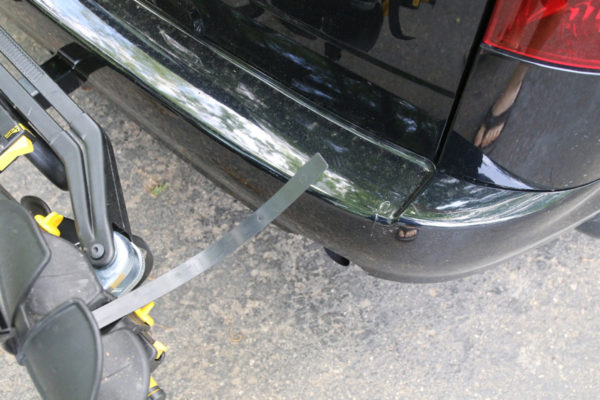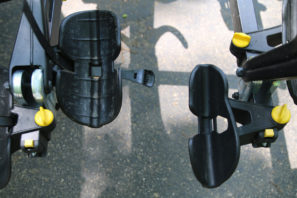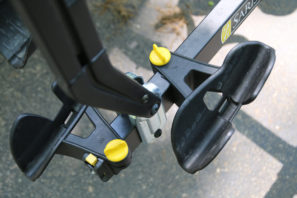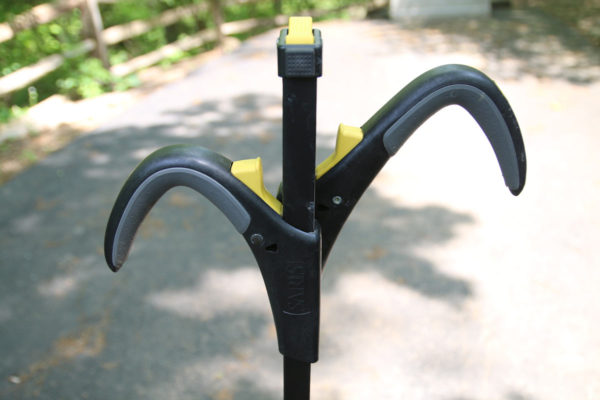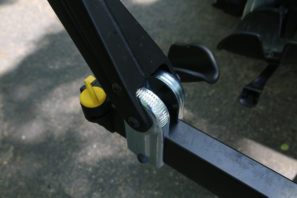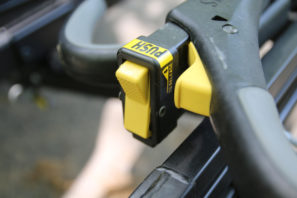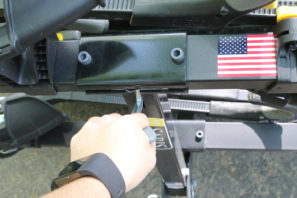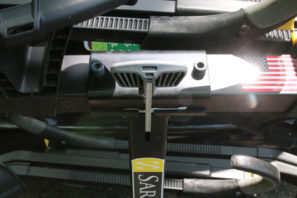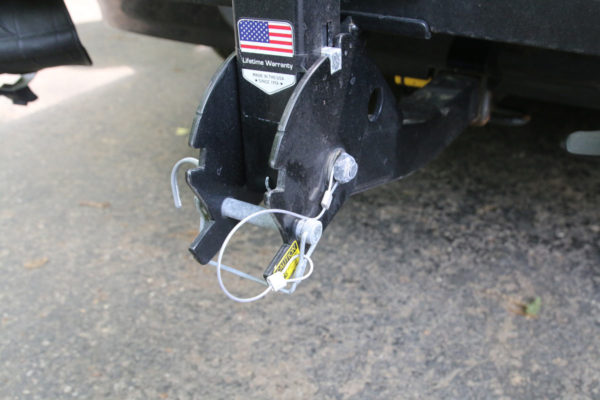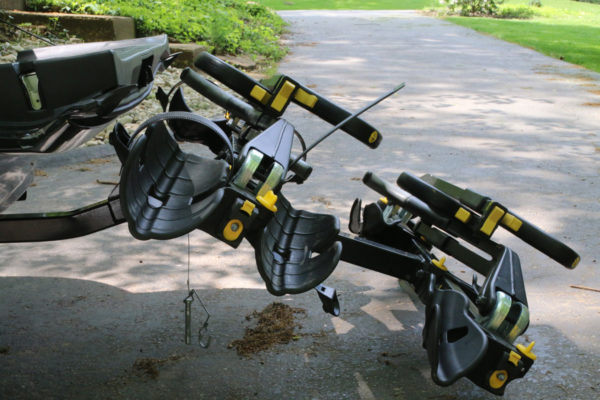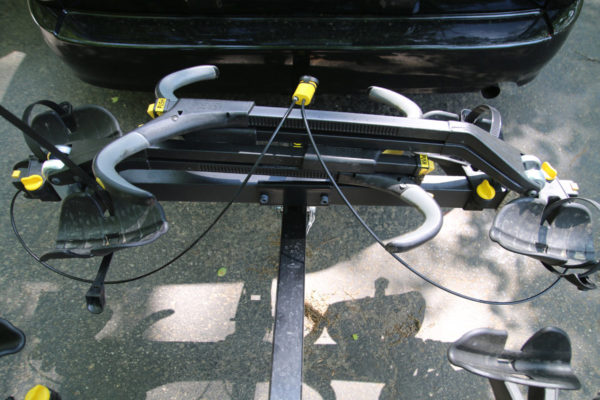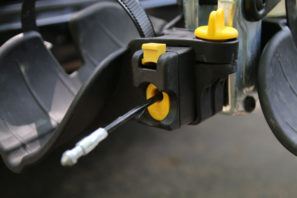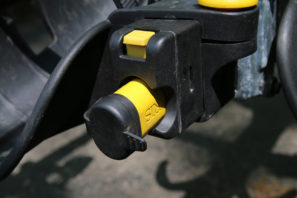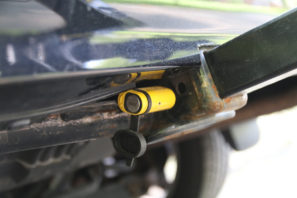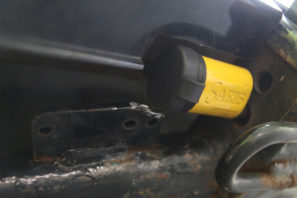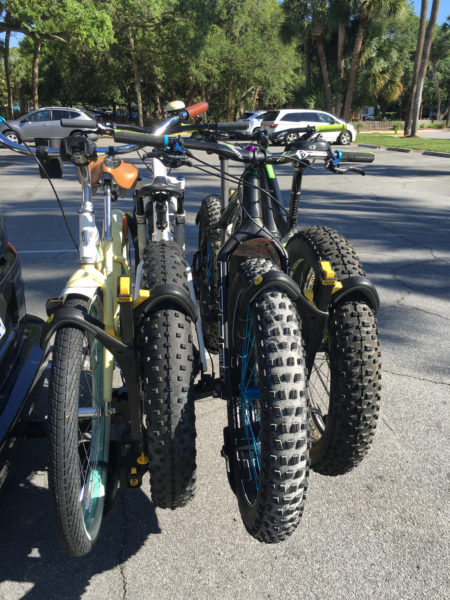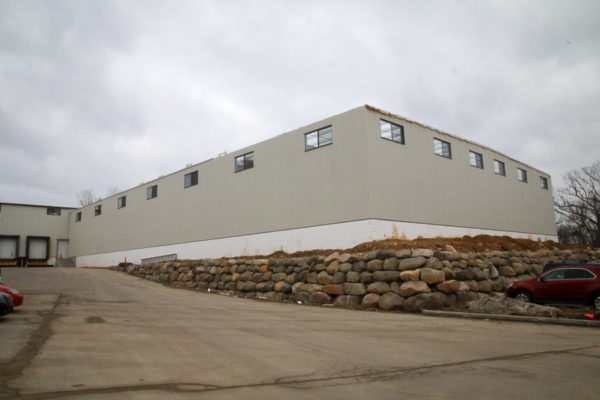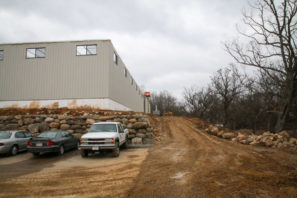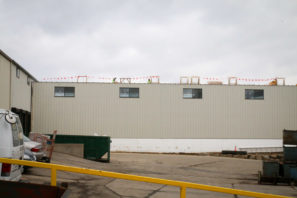Today, America celebrates its independence. Along with the constant fireworks and everything red, white, and blue, it also reminded me of the little American flag on the back of the Saris Freedom SuperClamp rack. There’s often quite a bit of talk around products that are made in the USA. It doesn’t always equate to a better product, but it certainly still means something. Just ask one of the roughly 200 employees at Saris’ Madison, WI factory. It’s not hard to see that domestic manufacturing is something that Chris and Sarah Fortune find as a source of pride. After purchasing Graber in 1989, the pair rebranded it as Saris – a combination of Sarah and Chris.
Since then Saris has acquired CycleOps, and PowerTap, bringing even more production in house. It was here in Madison that I got my first look at their impressive manufacturing facility as well as the beginnings of the Freedom SuperClamp. Before I knew it, there was a brand new rack bolted to my car and I was trying to figure out how to stuff a different 4 bike hitch rack inside my car for the long drive home. After seeing exactly how the rack was made, I had a chance to put some serious miles on the Freedom SuperClamp to see how it held up. Fortunately, being American made isn’t the only thing it has going for it…
Judging by the front of the building, you would never guess that so much manufacturing takes place here. At the forefront is a farm house from the 1850s that was actually part of the Underground Railroad. Now functioning as the office, the building has been expanded and modernized in a way to preserve much of the original structure and feel. In addition to the offices and product displays, there is a clear focus on employee well being with a beautiful cafe, and rooms for massages, meditation/yoga, exercising, showers and more. It was an impressive office place – even though I didn’t experience any of the friendly ghosts that are claimed to reside upstairs.
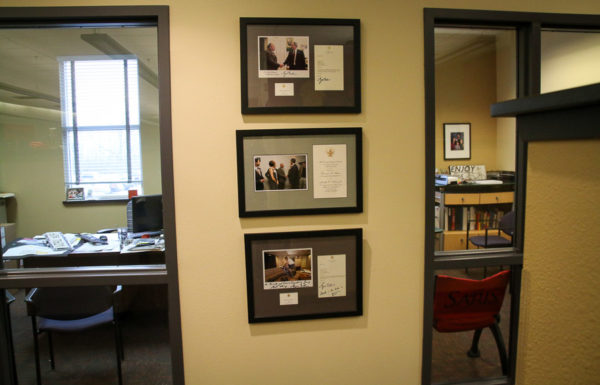
Step into the manufacturing facility and you walk right through one of the many bicycle storage facilities with lockers for commuters. Saris has a computerized system that tracks employees’ commuting miles and incentivizes them to keep riding to work – in any weather.
It isn’t all that often that you get a chance to walk down the production line and take home a product for review at the end, so this was a special treat. An indication of how busy Saris is, there were quite a few operations taking place that weren’t directly related to the Freedom SuperClamp like pipes being cut and bent for their industrial bike racks, and buckles being pressed for the Bones. Elsewhere the adjustable arms of the SuperClamp were taking shape from raw tubing.
Judging by the amount ready to ship, Saris makes a lot of bike racks – the kind you lock your bike to outside. These are all bent, formed, and welded right here.
Finished parts are grouped at the assembly line, and each rack is put together and placed in a box for shipping.
Amid boxes and boxes of completed racks, I noticed these posters. Quite a few employees that have over 15 years at Saris/Graber. Pretty impressive.
Completed racks end up looking something like this. The Freedom SuperClamp is a four bike hitch rack that fits 2″ receivers. After a few rack fails (especially with fat bikes) I was looking for a rack that would carry any bike I could throw at it, would handle the harsh winter of salt and slush, and was easy to load and use. After arriving with a competitors rack on my car, a SuperClamp was immediately put together and installed on my car before I could object.
One of the few steps of the initial assembly is to bolt the ratcheting arms to the tray. With an allen wrench an a socket wrench this takes a few minutes at most.
While the SuperClamp is 5″+ fat bike compatible, it does require the Fat Tire Wheel holder adapter trays. These will carry regular bikes too – down to skinny road tires which leads to one of my only complaints with the rack. At $49.99 per set (to carry four fat bikes you would need four sets) this is a hefty up charge if you’re looking at this rack for the ability to carry you and your 3 fat friends in the winter. Since the fat trays work with other tires, I’d rather see them stock without the need to upgrade and have eight large pieces of extra plastic sitting around.
The only downside I could find with using the fat bike trays for every bike is that the extra long straps can rub on the vehicle’s bumper. If this is an issue, just snap them in place a few clicks. For me, I only had to do this on the two trays closest to the car.
Fat tray or regular tray – both are adjustable fore and aft with a simple thumb screw. This allows you to adjust the trays for different wheel bases, and in theory should allow for the bikes to be positioned without interference. It was close, but there were still a few situations where there was bar on saddle or bar on bar contact, but it does work pretty well. I’m still looking for that magic system without any interference for any bike, but between the adjustable trays and the stadium seating-like positioning of the bikes, loading bikes is much less of a challenge.
At the end of both sides are ratcheting arms with two tire hooks that share the same upright. To raise the arms you have to push the yellow release button at the top, but to lower the arms you can just ratchet them closed. It’s similar with the co-molded tire hooks – just push down to tighten, press the yellow button to release. I’ve had some issues in the past with the buttons on other brands of racks sticking with road salt and grime – not here. They’re as good as they were when new after a winter and a few trips to the ocean.
I did notice that on bikes with wider rear ends (177-197mm) you have to load the bikes with the derailleur facing away from the ratcheting arm, or it will make contact. Narrower bikes clear without issue giving you more options for bike positioning.
One of the best features is how easy the rack folds up and down. The quick release lever can be used with one hand, and is located at the end of the rack for easy access. There is a safety pin underneath that only needs to be removed if you want to fold the rack all the way down. Element owners will be happy to know this clears the rear tailgate – even with bikes loaded!
To keep both the rack and the bikes safe, there are a few locks included. The bikes are secured with an integrated locking cable that is stored in each tray with one cable for two bikes. The cable is split into two and is held in place with a push button lock. It’s certainly not a high security cable, but it should keep your bike safe when you run into the store after a ride. The cable does not auto retract, so you have to push the button with one hand and pull or push the cable with the other which is a bit cumbersome, but it’s nice that the cable has its own home and won’t come out unintentionally. It’s also nice that the lock can be locked without the key – just push the end into the lock and it will click in place.
The same key will work the hitch pin lock which locks the rack to the vehicle. Compared to the other locks I’ve used in the past, this lock is pretty bulky and sits on the other side which meant I had to cut away more of the bumper cover to get it to fit. But once that small modification was made, it worked smoothly.
The only real downside to the tire hook model is compatibility with bikes that have fenders. To make the rack work with my wife’s beach cruiser, I placed the front hoot just in front of the front fender and placed the rear hook right on the rear fender with a section of pool noodle underneath. The noodle’s foam kept the fender from crushing, and the setup made it 10+ hours one way to the beach with minimal rub to the finish. Not exactly ideal, but it worked.
I’ve made this trip a few times with other racks, and this was by far the most stress-free. I loaded the bikes, made sure everything was tight, then stepped on it and made it there without incident with three fat bikes and a beach cruiser. There are a lot of very rough sections of highway along the way, and in spite of my car’s stiff suspension, the bikes all made it without any damage from bouncing around – especially since nothing touches the frame of each bike.
Overall, the Freedom SuperClamp has proven to be exactly what you want from a rack. It minimizes the hassle of loading bikes, fits almost every bike in my fleet, and makes transporting your bike an almost thoughtless activity. Finishes on the parts seem to be holding up better than most, and the lifetime warranty ensures that if you did have something fail, Saris would have your back. I will say that at 63lbs and $799.99 it’s not exactly light or cheap, but for the stability and ease of use the rack provides, that weight and cost is well worth it.
As big as Saris’ manufacturing facility is, making products like the Freedom SuperClamp – it’s getting bigger. While we were visiting in February, workers were actively building an 18,000 foot addition. For Saris, it’s clear that U.S. manufacturing is alive and well.

